Six Reich College of Education graduate students - Tamela Queen Carter, Enoch Robbins, Heath Robertson, Timothy P. Scapin, Audra Vaz, and Rebekkah Watkins - participated in the Three Minute Thesis (3MT) competition hosted by Appalachian State University’s Cratis D. Williams School of Graduate Studies. The final presentations were held virtually on October 30, 2020.
3MT is an international competition, where graduate students explain their research or scholarly/creative projects in standard non-disciplinary English to a general audience (the public) in 3 minutes with the help of only one static PowerPoint slide. There are three requirements:
Participants must be enrolled as a graduate student and be in good academic standing.
The topic must come from research or scholarly/creative project of significant scope.
The topic must be interesting enough to hold the attention of a nonspecialist
The competition was judged by a panel of faculty, community, industry, and alumni representatives.
Tamela Queen Carter
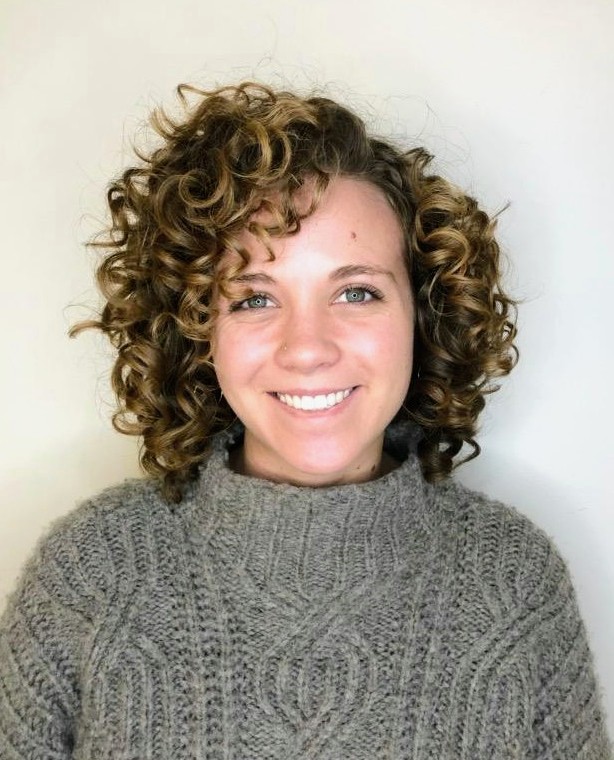
Tamela Queen Carter, of Sugar Grove, North Carolina, is a student in the special education master’s degree program. Her research interests are in reading education, academic engagement, and choice for students with disabilities.
Carter had the opportunity to work as an English teacher in Spain and as a paraprofessional in Winston-Salem. “After these opportunities, I was fascinated with the idea of European schooling and the stark cultural and academic difference between the two,” said Carter.
Watch her presentation on “Choices”.
Her next steps in the research project are to continue in the process of coding the data that was collected from the study conducted in the 2019-2020 school year.
“I am working with Dr. Cheek as a graduate research assistant mentee (GRAM) and along with coding, we are in the process of writing up the results of this study,” said Carter. “We are on track and hoping to submit our paper in spring 2021.”
“What I learned from this experience is that it is okay and maybe even beneficial to try something out of your comfort zone,” noted Carter. “I was hesitant at first to enter the competition, public speaking has always been a challenge of mine.”
“I know the experience was different this year than most, but even knowing that my video was being reviewed and potentially broadcasted was daunting,” she added. “Ultimately, I learned that taking risks is just a part of life and I am proud of myself for following through and participating in this extraordinary experience.”
“The advice that I have for further participants is to practice! For me, I wrote a script of what I wanted to say and I then practiced over and over again in front of the mirror, in front of my family and friends,” said Carter. “It is important to practice enough that you feel confident in what you are saying and to get past that vulnerability stage.”
Carter completed her Bachelor of Science in sustainable development in 2016. For her, App State and Boone are home.
“I have grown into the person I am today because of Boone and the Appalachian family,” she said. “It was never a doubt in my mind that I wanted to attend graduate school at Appalachian. I have been delighted with my experiences and attribute my growth and successes to the members of these communities and the institution itself.”
Enoch Robbins
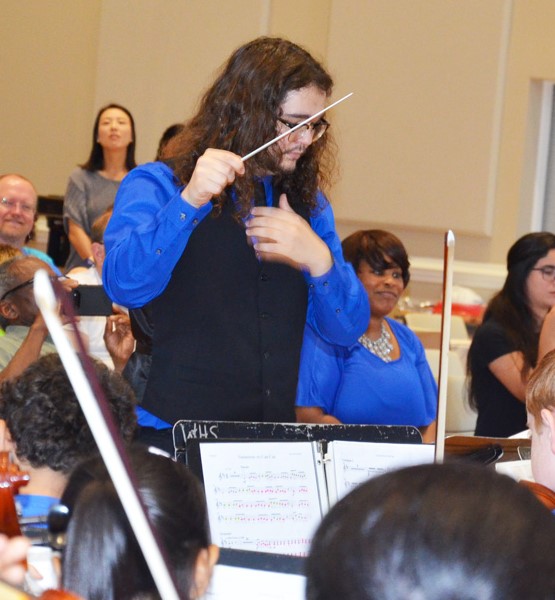
Enoch Robbins, of Durham, North Carolina, is a student in the curriculum specialist master’s degree program. His research focus is on multicultural music education.
“I got started when I realized the scope of standard music education did not do justice to the diverse students that I was teaching,” said Robbins.
Watch his presentation on “Everybody’s Song: Multicultural Music Curriculum”.
According to Robbins, the next steps for his research will be to find more artists and do more ethnography with them.
Robbins said he gained experience practicing his presentation skills by participating in the 3MT competition. His advice to future competitors: “Judges are drawn to quantitative elements of music.”
Robbins chose Appalachian because of “the flexibility of the online degree allowed me to pursue higher ed without leaving my students.”
Heath Robertson
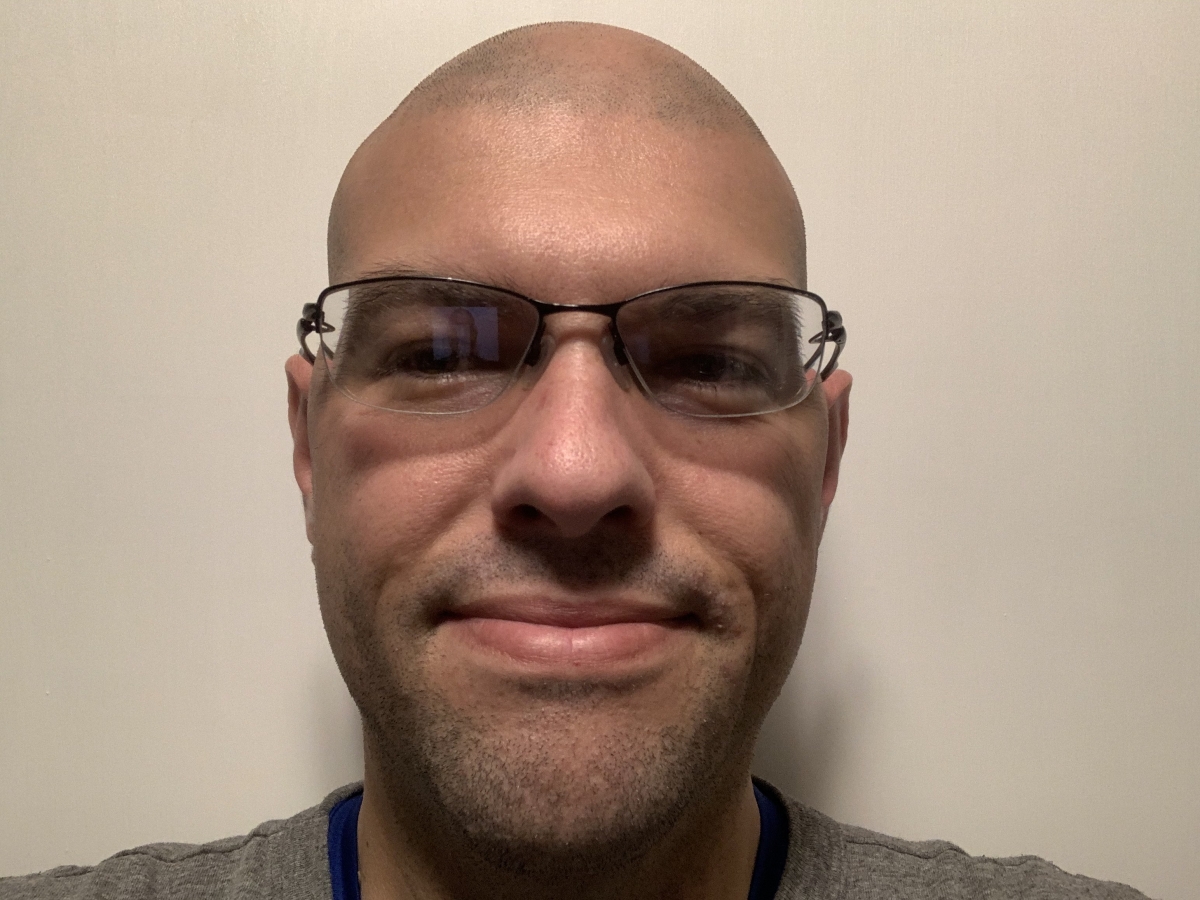
Heath Robertson, of Sylva, North Carolina, is a doctoral student in the educational leadership program. His research focus is on Indigenous education.
“As an Indigenous educator - Eastern Band of Cherokee Indians - it is important for me to ensure that the preservation of my Eastern Cherokee history and culture is a priority,” said Robertson.
“I was raised to always value who I am, what I am, and where I come from,” he continued. “Through my research, I am honoring the teachings of my ancestors.”
For the next steps in his research, Robertson will develop and implement a social studies curriculum that integrates Cherokee history and culture, while also teaching social studies from multiple perspectives.
Robertson noted that he learned how to explain his research in a short and concise way from the 3MT competition. His advice to future competitors: “Practice, practice, practice!”
Robertson received his Bachelor of Science in history, secondary education in 2005 and his Master of Arts in instruction technology in 2016, both from Appalachian.
“I have always felt that App State was my home away from home,” said Robertson. “I have been treated as well as anyone could hope, and there is a sense of loyalty for that.”
Timothy P. Scapin
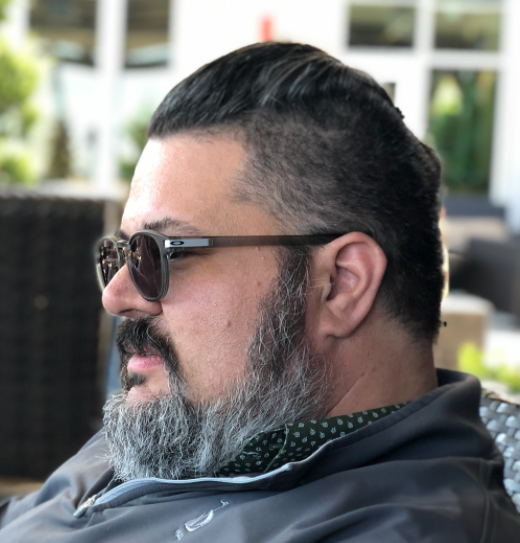
Timothy P. Scapin, of Clyde, North Carolina, is a student in the educational media master’s degree program. His research focus is on digital literacy and how a digital literacy initiative would positively impact learners in grades kindergarten through second grade.
“This project was a culmination of my time in the educational media graduate program,” said Scapin. “ Much of the research and material was rooted in coursework and molded into my capstone project.”
Watch his presentation on “Digital Literacy: The 4th R”.
Scapin plans on continuing his research on digital literacy in the realm of augmented reality (AR). “More specifically how the use of good AR tools can enhance learning experiences,” he added.
Recently, Scapin collaborated with Dr. Patrick O'Shea, associate professor in the Department of Leadership and Educational Studies and educational media program director, co-authoring a research paper centered around a review of commercially available educational augmented reality apps. They presented their findings at the Association for the Advancement of Computing in Education (AACE) Innovate Learning Summit this month.
When asked what he gained from the 3MT competition, Scapin said, “I loved two things about this competition: I was able to be creative and I was challenged.”
“Even though we could only utilize one static slide during our presentation it demanded that I utilize my creative skills to design one that was visually appealing and communicated a point,” he continued. “The challenge came when I had to knock-down pages of thoughts and research into a package under 3 minutes. Luckily I hit 2:59 and feel like I was able to have it make sense.”
“I strongly recommend, for any student thinking about participating in this challenge, to take the dive,” added Scapin. “I enjoyed the process and was able to learn about the outstanding research being conducted by my fellow Mountaineers.“
When asked why he chose Appalachian for his degree program, Scapin said, “App State exceeded my expectations. Graduate school at Appalachian is for anyone who wishes to better themselves through an educational journey rich with amazing people and innovative ideas.”
Audra Vaz
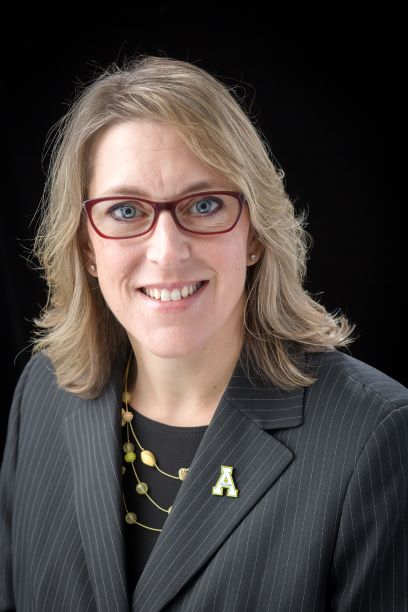
Audra Vaz, of Boone, North Carolina, is a doctoral student in the educational leadership program. Her research focus is on giving and gratitude, specifically on how the act of saying thank you impacts future donor behavior.
“I initially tested whether scripted phone calls from students to donors had any bearing on the donors' subsequent giving in terms of whether they gave again, which script they were more likely to respond to, and which mode of contact was favorable: live conversations or voicemails,” said Vaz.
Watch her presentation on “Donor Giving”.
The next steps of her research are to replicate it by testing the effectiveness of scripted thank you messages sent via text, rather than by phone call as previously studied.
When asked what she gained from participating in the 3MT competition, Vaz said, “Combining humor, facts, and practical implications for research into your presentation are highly favorable.”
She offered advice to students planning to present a social science research project: “Be prepared to compete with the hard sciences in a way that is intriguing and has practical implications.”
She also added, “Enjoy the process and experience!”
Vaz is the Executive Director of Development and Annual Giving at Appalachian. She chose the doctoral program because “it is a top-notch program that allows me to continue my education while simultaneously working for the university.”
Rebekkah Watkins
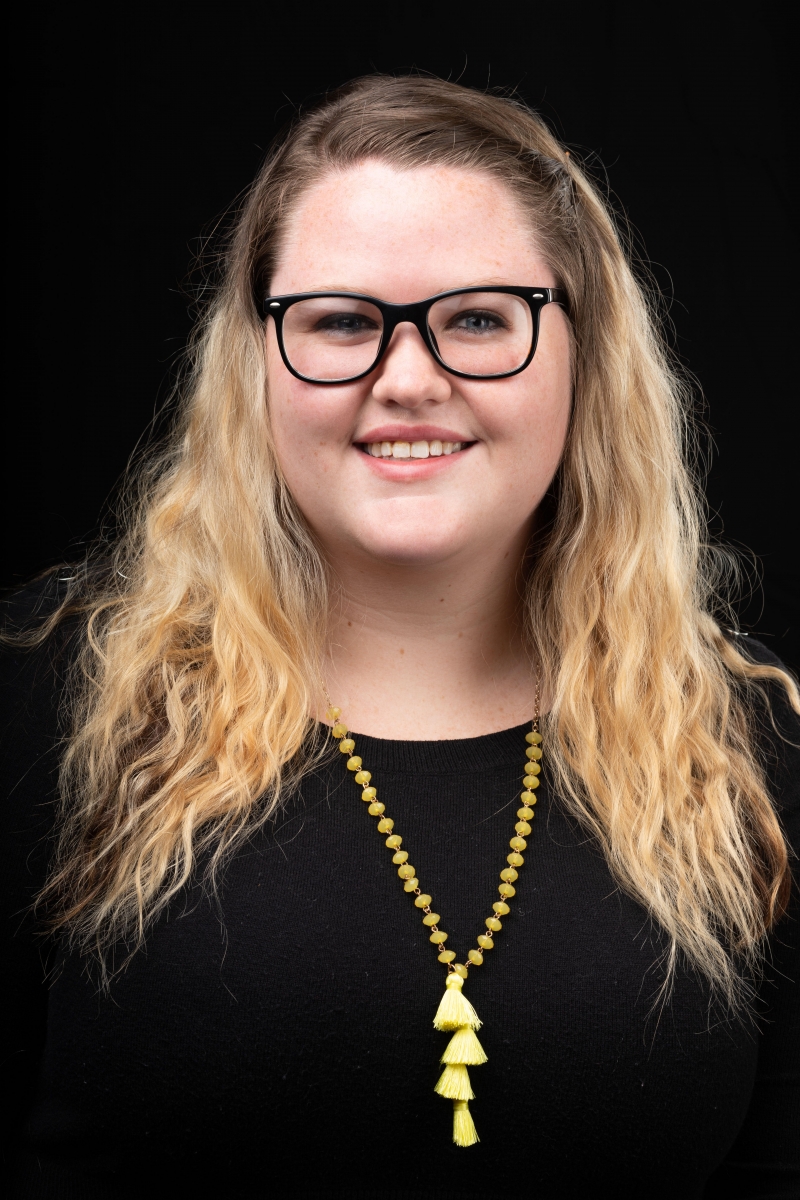
Rebekkah Watkins, of Cullowhee, North Carolina, is a doctoral student in the educational leadership program. Her research focus is on community education.
“I got started when I helped create a large-scale educational event during my undergraduate studies,” said Watkins.
“It really put me on the path I am on now and given the chance I'd like to do a deep dive into the research to learn more about how I can help bring education to the community,” she added.
Watch her presentation on “Bridging the Gap: Commuity and University Education Working Together”.
The next steps for her research will be to “explore and make a good research question to begin the process of deep research.”
When asked what she gained from her experience with 3MT, Watkins said, “I participated last year (in person) and made it to the finals. This year, while I didn't make it to the finals, I learned more about how to present materials virtually, which I think will become a necessary skill in the coming years.”
Her advice to interested students: “Do it! While it is always scary to present your work, 3MT gives a low-stakes opportunity to present in front of judges and peers.”
“It's a great way to practice and learn more about your presentation style. It also really helps you become concise when describing your work - it is 3 minutes after all,” she added.
Watkins fell in love with Appalachian while pursuing her Master of Arts in public history/museum studies. She appreciates the doctoral program’s welcoming environment, particularly the “support and space to explore extending research beyond the classroom.”